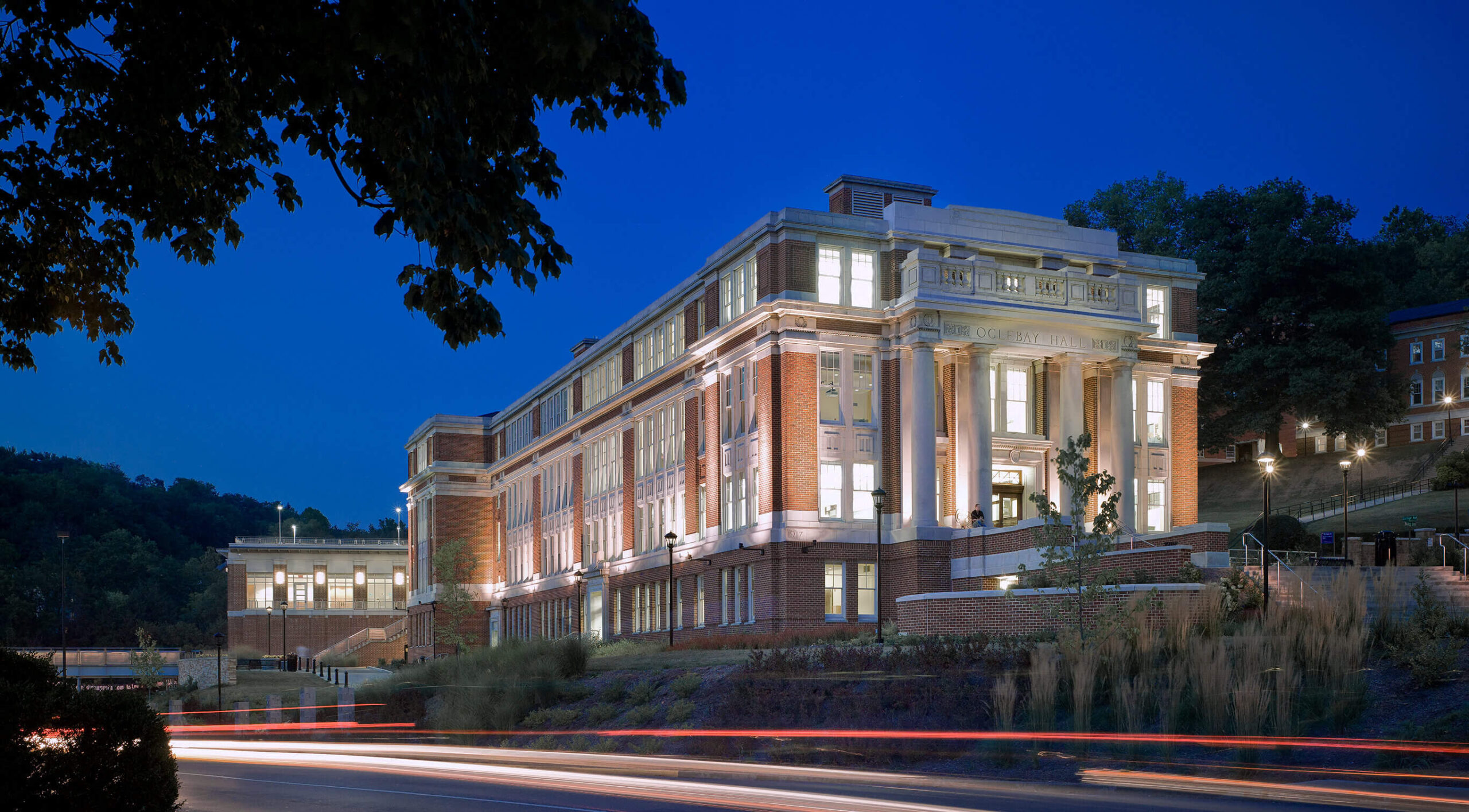As a graduate student in the law and Master of Public Administration programs at West Virginia University, Bill Hinerman joined the Navy JAG Corps in 1989, which led to a lifelong career in government and the military. Hinerman shared with us how his WVU education was the foundation of his career.
Briefly describe your career path.
While I was still a student in 1989, I joined the Navy JAG Corps. I served in 34 countries on six continents, specializing in international law and admiralty. In 1997, I began working with the federal court system in Elkins, West Virginia. In 2010, I joined the FBI as unit chief of the Internet Crime Complaint Center (IC3). I retired from both the FBI and Naval Reserves in 2016.
Describe your work at the FBI Internet Crime Complaint Center.
I was the unit chief at the IC3. I supervised all operations, handled personnel and budget issues and ran the unit within the confines of federal and international law. Most significantly, for the first time in the IC3's history, I increased access to our data from 32 analysts to many thousands of local, state, federal and even international law enforcement officials.
What are you passionate about in your work?
Integrity. I can teach anyone to use a computer and analyze data, but I can only hope to inspire integrity.
Where is your career headed?
Although retired, I remain involved with state bar functions, JAGC issues and giving presentations on cybercrime and law. Mostly, at this point in life I fish, hike and enjoy our beautiful state.
How has your Eberly College experience helped shape your success?
It was the cornerstone (with my Juris Doctorate) upon which I built my entire career. From my second Navy assignment through my career at the FBI, my MPA was crucial in my career progression.
How are you making a positive impact in the world?
I was recalled to active military duty after 9/11, again in 2012 for Afghanistan and in 2015 to serve as staff judge advocate for the Reserve Command Center Norfolk, overseeing legal issues arising at all Naval Reserve Centers from South Carolina to Maine. I helped close Subic Bay, Philippines; opened the first JAG office in Sasebo, Japan; was the JAG on the first U.S. naval ship to visit Republic of Congo and Angola since World War II and was deputy director of rule of law at the U.S. embassy in Kabul, Afghanistan during the military draw down.
What is the most interesting thing that’s happened to you since earning your degree?
Working for the Defense Institute of International Legal Studies in 2011, I visited an Equatorial African country to lead a particularly heated meeting in which high-ranking civilian and military leaders harshly criticized basic humanitarian concepts. These heavily armed men wore stars and medals on their uniforms, had body guards and connections throughout the world and held the power of life and death in their hands. It was a very intimidating group. They openly resisted, and even resented, western political philosophy. I had to teach rule of law without pinpointing their violations and antagonizing the attendees. It was a minefield, to be sure.
Afterward, we returned via armored vehicle through dirt and gravel streets to our ship. That evening I stood on the bow looking out at the city lights struggling to sparkle through the hazy smog of the pungent salt air. I thought how far it was from Lindsey Lane, where as a 13-year-old I cleaned out the sawdust pit at my dad's sawmill on summer days and rode my bicycle out to Rodriguez Pond to fish on Saturdays. Somehow, I could still hear the whining of the old Belsaw chewing through the logs and still smell the sour oak slabs. The gateway to the world, for me, was none other than WVU, where I got the education enabling me to begin this journey. And what a journey it's been.
Your favorite WVU memory?
This has to be walking across that stage and graduating on Mother’s Day in 1990 with my two sisters to receive our graduate degrees. Despite the seven years that separate us, and despite our broadly disparate paths to that point, we all ended up on that stage together, the first in our extended families to reach that level of education. I only wish our grandparents could have witnessed that momentous day.
How do you support and participate in the public administration program?
I taught in the Department of Public Administration in the 1990s. It provided the experience and confidence that led to my teaching at the University of Maryland, Central Texas College and Davis and Elkins College. I've followed the program for nearly three decades and mentored graduates through the years. My life has been wonderfully enriched from my association with the program.
What advice would you give a student interested in pursuing a career in the military?
Do it! A military career is amazingly rewarding, leading to places and situations beyond expectations. The opportunities for growth, education, travel, training and specified work experience within the military are incredible, especially compared to civilian jobs. And as a second, parallel carrier via the Reserves, it not only provides a second income, but a fantastic distraction from the daily grind and a second, guaranteed retirement income for life. I shudder to imagine my own life without the military.
Is there anything else you’d like to share?
I've been very blessed in life, and I've got my family, God and WVU to thank for a magnificent journey.



